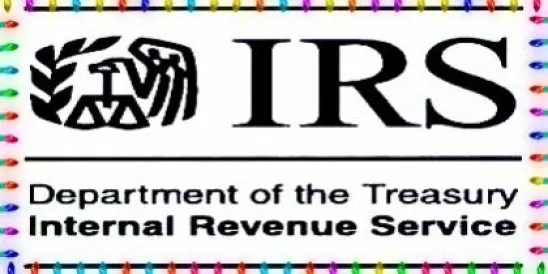On November 17, 2011 the IRS issued final Treasury Regulations (the “Final Regulations”) that address the tax consequences of a debtor partnership’s issuance of equity in satisfaction of a debt obligation (a “Partnership Equity-for-Debt Exchange”). The Final Regulations provide debtor partnerships, their partners and creditors with welcome clarity regarding the federal income tax consequences of such restructuring.
Section 108 of the Internal Revenue Code of 1986, as amended (the “Code”) provides that, when a partnership issues equity in satisfaction of its debt, such partnership shall be treated as satisfying such debt for an amount of money equal to the fair market value of such equity interest. The partnership recognizes cancellation of indebtedness income (“CODI”) equal to the excess, if any, of the amount of the debt obligation satisfied over the fair market value of such equity interest, which is allocated to the partners in the partnership immediately before the exchange. The Final Regulations address both the means for determining the fair market value of the partnership equity issued as well as the consequences of such exchange to the holders of the partnership debt receiving equity.
Tax Consequences to the Debtor Partnership and its Historic Partners
The Final Regulations provide that the fair market value of equity issued in exchange for debt is determined based on all facts and circumstances unless the requirements of a safe harbor (the “Safe Harbor”) are fulfilled. If the Safe Harbor applies, the fair market value of the partnership interest is deemed to be equal to the liquidation value of such interest. The liquidation value of the partnership interest is the amount of cash the former creditor would receive if, immediately after the Partnership Equity-for-Debt Exchange, the partnership sold all of its assets (including goodwill, going concern value, and other intangibles) for cash equal to the fair market value of such assets and then liquidated.
The Safe Harbor applies if (i) the creditor, debtor partnership, and its partners treat the fair market value of the interest as equal to the liquidation value for purposes of determining the tax consequences of the Partnership Equity-for-Debt Exchange, (ii) the debtor partnership transfers more than one of its interests to one or more creditors, then each creditor, the debtor partnership, and its partners treat the fair market value of such interest transferred as equal to its liquidation value, (iii) the terms of the Partnership Equity-for-Debt Exchange are comparable to terms that would be agreed to by unrelated parties with adverse interests, and (iv) after the Partnership Equity-for-Debt Exchange neither the partnership nor certain persons treated as related to the partnership redeem or purchase the interest received by the creditor as part of a plan at the time of the Partnership Equity-for-Debt Exchange that has a principal purpose the avoidance of recognition of CODI by the partnership.
The proposed regulations that preceded the Final Regulations (the “Proposed Regulations”) made the application of the Safe Harbor subject to the partnership maintaining its capital accounts in accordance with the capital account maintenance rules in the Treasury Regulations under section 704 of the Code. This requirement was not included in the Final Regulations in response to comments received that compliance with all of the capital account maintenance rules in such Treasury Regulations is not necessary to permit the use of liquidation value as the fair market value of a partnership interest.
The Proposed Regulations also conditioned the application of the Safe Harbor on the equity-for-debt exchange being an arm’s length transaction. The Final Regulations modified this requirement to provide that the terms of the exchange only be similar to what would have been agreed to be unrelated parties with adverse interests to clarify that such requirement can be satisfied even when the transaction is between related parties.
Tax Consequences to the Creditor
Section 721 of the Code generally provides that a contribution of property by a person to a partnership in exchange for an interest in such partnership is a nontaxable exchange. The Final Regulations follow the Proposed Regulations and confirm that the nonrecognition rule under section 721 of the Code applies to exchanges of partnership debt for equity of the same partnership. However, the Proposed Regulations provided that such nonrecognition rule did not apply to contributions of indebtedness related to unpaid rent, royalties, or interest (including accrued original issue discount), to prevent the conversion of ordinary income into capital gain. The Final Regulations narrow the scope of this exception and state that section 721 of the Code does not apply only to the creditor’s receipt of an interest in the debtor partnership in exchange for such items to the extent accrued on or after the beginning of the creditor’s holding period for the debt exchanged.
Conclusion
The Final Regulations provide greater clarity with respect to the consequences of Partnership Equity-for-Debt Exchanges and should facilitate partnerships’ ability to restructure their debt by offering equity in satisfaction of such claims.
___________________
IRS Circular 230 Disclosure: As required by United States Treasury Regulations, you should be aware that this communication is not intended or written by the sender to be used, and it cannot be used, by any recipient for the purpose of avoiding penalties that may be imposed on the recipient under U.S. federal tax laws.



 />i
/>i

